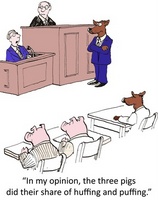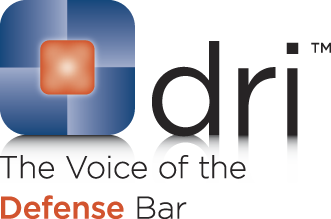 The Nevada Supreme Court held in a minor rear end accident case that Accident Reconstruction experts are not necessary for mounting low impact defenses.
The Nevada Supreme Court held in a minor rear end accident case that Accident Reconstruction experts are not necessary for mounting low impact defenses.
Mr. Simao and his wife filed a claim against Ms. Rish claiming bodily injuries following an unremarkable rear end accident in stop and go traffic where no one was transported from the scene. Prior to trial, the Court granted Plaintiffs’ pretrial motion to forbid Rish, her medical expert and her witnesses from testifying, arguing or insinuating a low-impact defense because Rish did not retain a biomechanical engineer. Simao’s motion relied upon the Hallmark decision to preclude a low impact defense in absence of a biomechanical expert to lay a foundation for the jury.
However, the initial order took a life of its own. Plaintiffs argued that the order precluded defendant from discussing the facts of the accident. Plaintiffs used the order to preclude Defendant’s description of the accident, a defense Expert Witness’ description of the accident, and virtually all of Defense counsel’s examination regarding the accident. The Court sustained objections to defense counsel’s examination regarding if the passengers in the Rish vehicle were injured.
Defense counsel unsuccessfully sought clarification of the pretrial order on multiple occasions only to find the Court responding that the order was clear. Despite these efforts, the Court admonished defense counsel that continuing violations of the order would result in progressive sanctions. Ultimately, the Court issued an irrebuttable instruction to the jury that the accident was sufficient to cause the type of injuries sustained by Plaintiff and struck the answer.
At the prove up hearing, the Court award Plaintiffs $4.5 million in total damages.
The Nevada Supreme Court identified the pretrial order and the trial court’s striking of the answer as an abuse of discretion and clearly erroneous. The Court bridled at the trial court’s interpretation of Hallmark noting that “[n]othing in Hallmark mandates that supporting testimony from a certified biomechanical engineer or other expert must be offered before a defendant will be allowed to present a low impact defense.”
The Court found that requiring expert testimony to describe the accident as the basis of a low impact defense would deprive juries of the testimony about the nature and circumstances of the accident and any resulting injuries. Further, the Court found that a medical doctor, such as the defense expert, may relate the nature and severity of the impact and injuries and may provide a causation opinion. Although the Court specified the ruling did not suggest that low impact collisions cannot result in serious injuries, the Court recognized a “common-sense correlation” between the nature of the impact and the severity of the injuries that Plaintiff may surmount with testimony, cross-examination and other sources of evidence.
So the Court’s ruling lassoed a stampeding trial court order requiring an expert for a low impact defense. Given the “common-sense correlation” between impact and injuries identified by the Court, the decision to hire an accident reconstruction expert should be made on a case by case basis. Instead of an inflexible rule requiring an accident reconstruction expert for every low impact defense, counsel simply may consider posing the question to the jury itself: “Could this accident have caused these injuries?”
In the meantime, if you have questions on Nevada insurance, bad faith or trucking law, please be sure to contact Mike Mills at Bauman, Loewe, Witt & Maxwell, 702-240-6060. Or send an email at mmills@blwmlawfirm.com
 Follow
Follow Email
Email


